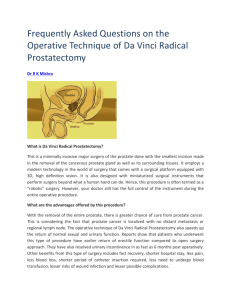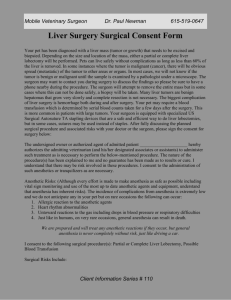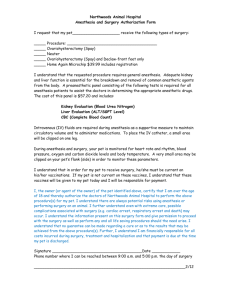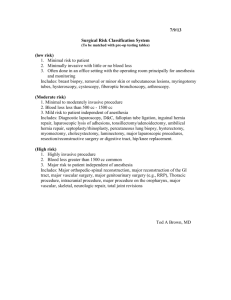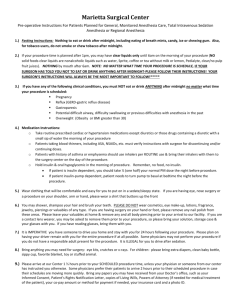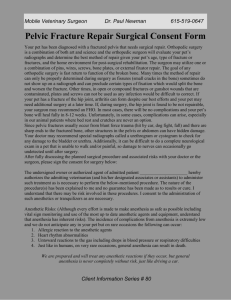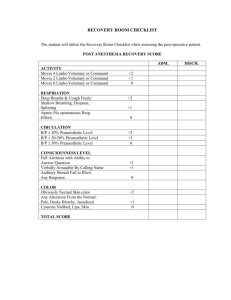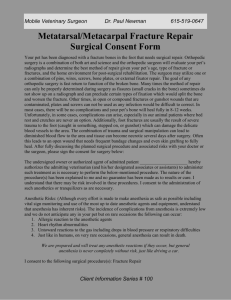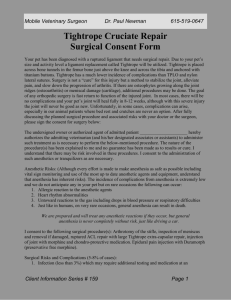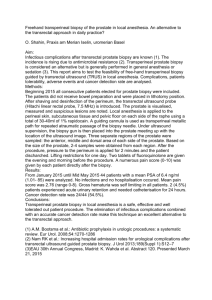Glucose Curve Procedure For Diabetics
advertisement
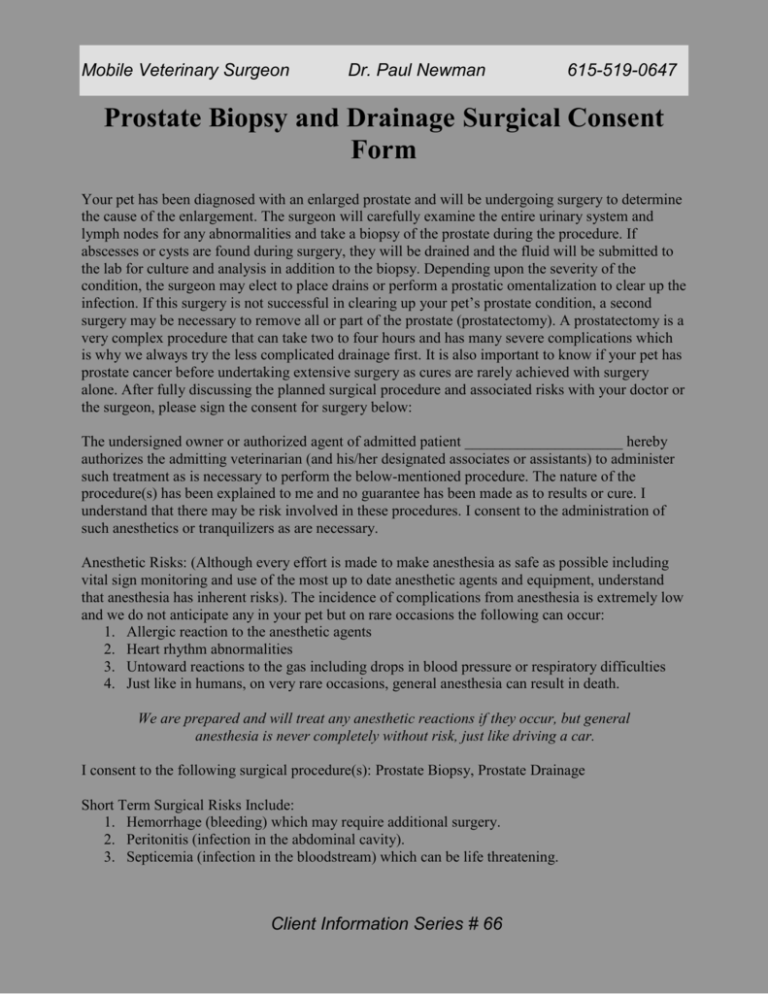
Mobile Veterinary Surgeon Dr. Paul Newman 615-519-0647 Prostate Biopsy and Drainage Surgical Consent Form Your pet has been diagnosed with an enlarged prostate and will be undergoing surgery to determine the cause of the enlargement. The surgeon will carefully examine the entire urinary system and lymph nodes for any abnormalities and take a biopsy of the prostate during the procedure. If abscesses or cysts are found during surgery, they will be drained and the fluid will be submitted to the lab for culture and analysis in addition to the biopsy. Depending upon the severity of the condition, the surgeon may elect to place drains or perform a prostatic omentalization to clear up the infection. If this surgery is not successful in clearing up your pet’s prostate condition, a second surgery may be necessary to remove all or part of the prostate (prostatectomy). A prostatectomy is a very complex procedure that can take two to four hours and has many severe complications which is why we always try the less complicated drainage first. It is also important to know if your pet has prostate cancer before undertaking extensive surgery as cures are rarely achieved with surgery alone. After fully discussing the planned surgical procedure and associated risks with your doctor or the surgeon, please sign the consent for surgery below: The undersigned owner or authorized agent of admitted patient _____________________ hereby authorizes the admitting veterinarian (and his/her designated associates or assistants) to administer such treatment as is necessary to perform the below-mentioned procedure. The nature of the procedure(s) has been explained to me and no guarantee has been made as to results or cure. I understand that there may be risk involved in these procedures. I consent to the administration of such anesthetics or tranquilizers as are necessary. Anesthetic Risks: (Although every effort is made to make anesthesia as safe as possible including vital sign monitoring and use of the most up to date anesthetic agents and equipment, understand that anesthesia has inherent risks). The incidence of complications from anesthesia is extremely low and we do not anticipate any in your pet but on rare occasions the following can occur: 1. Allergic reaction to the anesthetic agents 2. Heart rhythm abnormalities 3. Untoward reactions to the gas including drops in blood pressure or respiratory difficulties 4. Just like in humans, on very rare occasions, general anesthesia can result in death. We are prepared and will treat any anesthetic reactions if they occur, but general anesthesia is never completely without risk, just like driving a car. I consent to the following surgical procedure(s): Prostate Biopsy, Prostate Drainage Short Term Surgical Risks Include: 1. Hemorrhage (bleeding) which may require additional surgery. 2. Peritonitis (infection in the abdominal cavity). 3. Septicemia (infection in the bloodstream) which can be life threatening. Client Information Series # 66 Mobile Veterinary Surgeon Dr. Paul Newman 615-519-0647 4. Self mutilation of the drains (keep collar on pet at all times to prevent this). 5. Urine leakage through drain tubes from infection or tumors causing holes in the urethra within the prostate (rare, and usually resolves in a few days). Long Term Surgical Risks Include: 1. Urinary incontinence (loss of complete control of urinations) can occur in up to 48% of cases. 2. Recurring urinary tract infections (30% of cases) that may need long term antibiotic therapy or pulse antibiotic therapy (one week of medication every month). 3. Recurrence of abscesses (18%). 4. Urethrocutaneous fistula formation (urine drains from the bladder through the skin, 2% incidence). Strict adherence to post-surgical care and medicating of your pet will minimize these potential complications. ______________________________________________________________________________ Date Pet Owner/Agent Signature Phone I Can Be Reached At Today Client Information Series # 66
